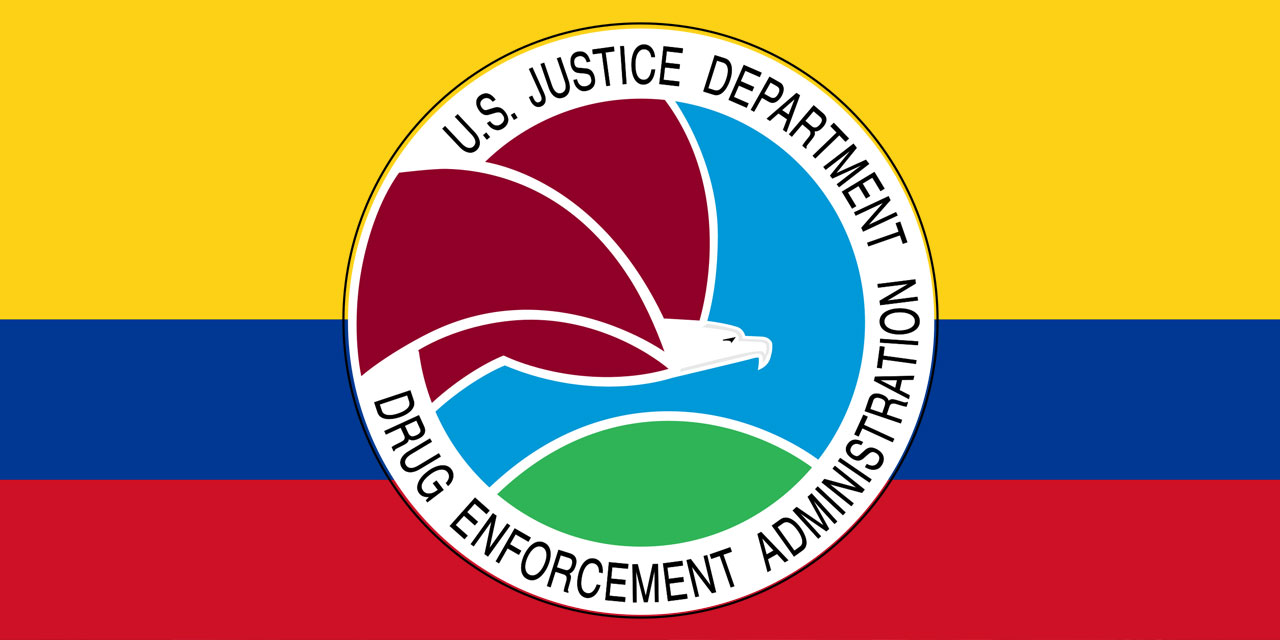Colombia’s prosecution on Tuesday confirmed reports that the US government requested an investigation of a prosecutor of the war crimes tribunal.
According to the Prosecutor General’s Office, prosecutor Carlos Julian Bermeo, former Senator Luis Alberto Gil and three other suspects accepted a $500,000 bribe from an undercover agent to influence the decision of the Special Jurisdiction for Peace (JEP) on an American request to extradite FARC leader “Jesus Santrich.”
The suspects were filmed receiving the money around the time that local media reported that the US Department of Justice refused to surrender evidence that would support a disputed DEA claim Santrich tried to smuggle 10 tons of cocaine between 2017 and last year.
Bribery charges make FARC leader’s extradition case even weirder
In a bizarre twist, the Prosecutor General’s Office claimed at a court hearing on Tuesday that the suspects also talked to an undercover agent about the transport of 120 kilos of drugs from Bogota to Rome via the American city of Atlanta, which is how the DEA allegedly got involved in the plot to stall the Santrich case.
Local media reported that the undercover agent who allegedly negotiated both the drug deal and the stalling of the Santrich case works for the DEA, whose claim that the virtually blind FARC leader conspired to traffic drugs is contradicted by evidence. This claim has not been confirmed by the prosecution.
Did a DEA hoax devastate Colombia’s peace process?
The alleged Santrich conspiracy
According to the prosecution, Bermeo claimed just before his arrest that he had already managed to stall Santrich’ extradition case by making sure the letter asking the US government for evidence in the case did not arrive.
Colombia’s justice minister initially blamed the nondelivery of the letter, which ended up in Panama, on the messenger service.
The war crimes tribunal prosecutor also offered to “delay orders to the judicial police, request the extension of orders given by a magistrate to delay terms, [and] the return of documents sent by a foreign agency within the case,” the Prosecutor General’s Office told the court.
According to a transcript released by the prosecution, one of the suspects told the undercover agent that the prosecutor was friends with non-existent “magistrate Rigal,” whose name does not appear in the books of the war crimes tribunal.
JEP president Patricia Linares almost immediately rejected the prosecution claim, telling press that “we absolutely rule out that [Bermeo] could have had any direct or indirect influence on the non-extradition guarantee process” of the FARC leader.
The attorney of Santrich, the alleged beneficiary of the alleged conspiracy, has denied knowing any of the parties involved in the incomprehensible conspiracy claim.
The drug trafficking claim
Bermeo’s first day in court saw the introduction of the claim that Gil and Bermeo conspired with the undercover agent to traffic drugs to Europe via the United States.
The words “drugs” and “cocaine” were not used in any of the evidence presented before the judge, who has yet to approve of the arrest of the five alleged conspirators.
The drug trafficking conspiracy is allegedly how the DEA found out that Bermeo was corrupt, but what is confusing is how the mysterious undercover agent became a part in both this alleged conspiracy and the subsequent one that allegedly sought to obstruct justice in the case against Santrich.
According to the Inspector General’s Office, which monitors the trial, it is unclear why the war crimes prosecutor received the money.
“It can be contradictory that the prosecution tells us that the dollars received were supposedly intended to pay for what he had done and, at the same time, an incentive to pursue other activities that Bermeo said he could accomplish,” the Inspector General’s representative told the court.
Bermeo, like Santrich, claims he’s being framed
All suspects in the case said they were not guilty of the drug trafficking and corruption charges filed by the prosecution. After the prosecution failed to set up a Skype call with Gil, who has been admitted to hospital, Bermeo’s lawyer told press it seemed his client was being “framed.”
A recording surrendered to the war crimes tribunal in October appeared to confirm the FARC’s claim that the DEA and Colombian chief prosecutor Nestor Humberto Martinez were also trying to frame Santrich, who until after the peace deal had never been associated with drug trafficking activities.
The arrest of Santrich was a major blow to the peace process, with 30 FARC leaders going into hiding after he was arrested.
Following Friday’s arrest of the prosecutor, Colombian media began to openly question whether the DEA also entrapped the prosecutor, considering that evidence indicated that the undercover agent initiated the entire conspiracy.
Newspaper El Espectador released an account based on anonymous sources close to the process that contradict the official version, and reveals the possible undercover agent went by Asaf and had a Mexican accent like the anonymous undercover agent called “source” by the prosecution.
In the Santrich case, DEA agent Brian Witek posed as a Mexican drug trafficker seeking to export 10 tons of cocaine to the United States.
According to the accounts gathered by El Espectador, Gil was approached by Asaf, who said he had invested in some properties with Santrich and wanted to know what would happen if he was extradited. Gil provided the contact to Bermeo, and they met in Gil’s home to discuss the JEP and extradition process.
While the use of undercover agents is legal in Colombia, entrapment is not. In fact, if the court finds that the undercover agent set up the conspiracy to traffic drugs and to obstruct justice, he could be prosecuted for these crimes.



